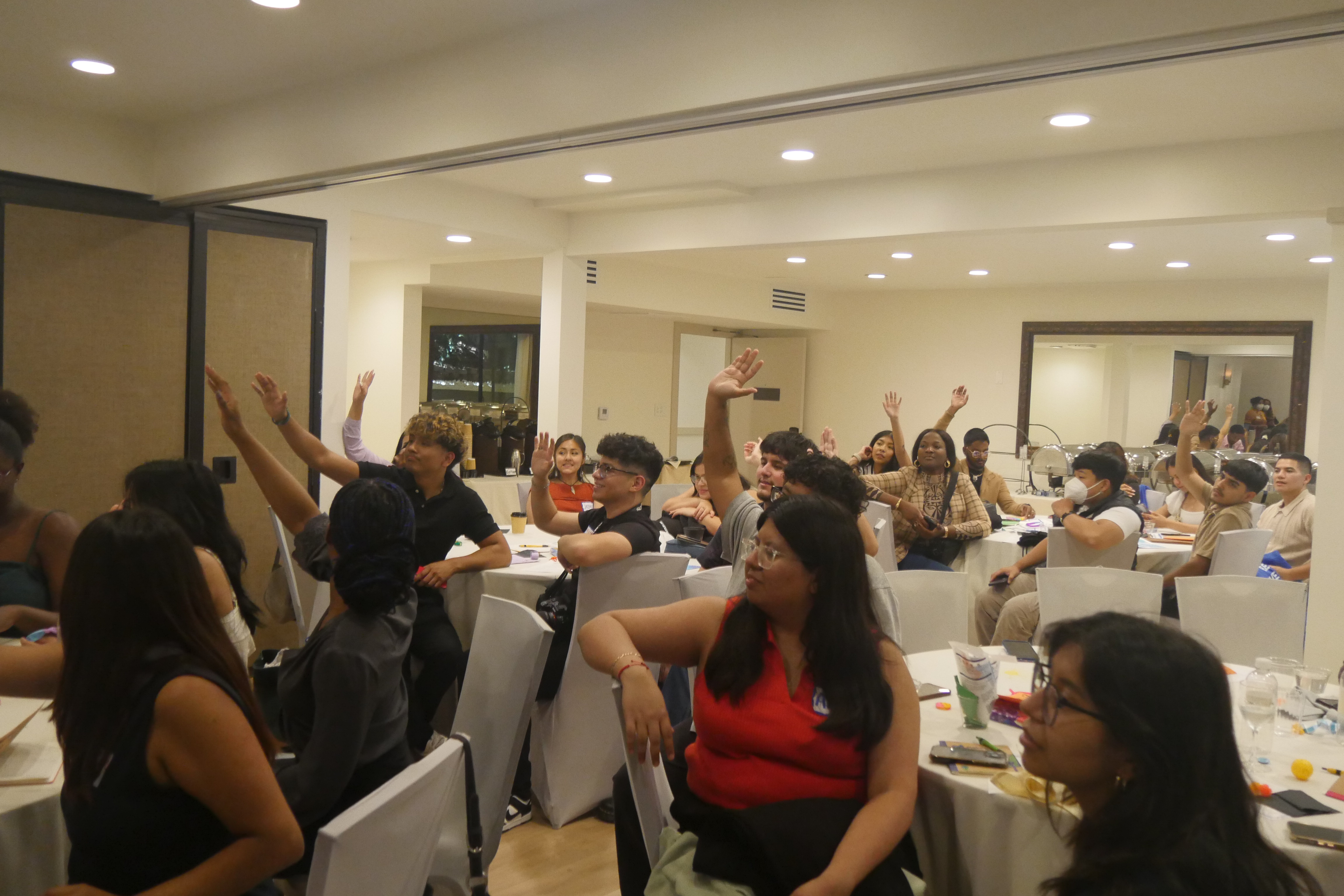
By: Silvia Vazquez and Prabhleen Kaur
Dream Summer is an annual, 8-week, national fellowship of the UCLA Labor Center’s Dream Resource Center (DRC). Through Dream Summer, the DRC has provided close to 900 fellowship opportunities to immigrant youth and allies and has partnered with over 265 social justice organizations across the country. Dream Summer fellows attend retreats at the beginning and end of programming with the goal to provide fellows an opportunity to build connections with other participants. The fellows engage in workshops that prepares them for their placements and engage in critical conversations about the intersecting issues impacting our communities including social, economic and racial justice.
Dream Summer fellow Irl P. shares their summer experience working with their host organization, Convivir Colorado.
Where are you from?
I am from Bali, Indonesia, but I have lived in Colorado for the past seven years.
What are your career aspirations?
I am currently working as a LEAD Coach with College Track Denver, where I teach ninth graders college readiness and life skills. I want to stay in the education and nonprofit field, ultimately helping students from underrepresented backgrounds achieve their goals. I am also a storyteller at heart — I love making documentaries and doing videography work.
How has the Dream Summer fellowship helped you grow?
This fellowship has pushed me beyond my comfort zone by involving a fully remote experience that taught me actions and impact can occur regardless of distance and scope. It challenged me in my critical thinking through researching mental health resources for immigrant youth while celebrating my creativity in the app-building project. Technically, I learned about data collection, data analysis, and app design. More importantly, I learned about the importance of research, its connection to data and surveys, and how all these elements contribute to a cohesive project that can benefit a community.

Can you describe the main goals of the research you conducted with your host organization on undocumented K-12 students and their access to mental health services?
My research has three goals:
- Find existing research that supports the impact of mental health-oriented programming on immigrant youth, and compare it to how Convivir Colorado, a leadership program for immigrant youth, measures up.
- Define mental health through the lens of the migration experience.
- Explore the most effective tools within mental health-focused programming that improve the livelihood and mental health of immigrant youth.
What motivated you to focus on this specific issue?
This issue was presented to me by my fellowship coordinator and I believe it is an important and often overlooked or neglected topic. I have a passion for education, youth, and storytelling, so this topic is very dear to me even prior to the fellowship.

What challenges have you encountered while researching this topic?
There is limited research on mental health issues and resources specifically within the immigrant youth community. This is due to various reasons, including distrust in government institutions, a lack of invitation and understanding from the scientific community, and the tendency of the immigrant community to prioritize daily struggles over mental health issues. Moreover, there is a lack of open dialogue and safe spaces where immigrant youth can truly express themselves and their stories, which prevents them from processing their experiences and gaining a better awareness of their mental health and well-being.
How do you think improving mental health services for undocumented students can impact their overall well-being and academic performance?
Improving mental health means alleviating one burden in students’ lives that could prevent them from thriving academically. Through my research and experience with Convivir, I learned the importance of confidence in one’s identity. This confidence translates into agency and advocacy, enabling students to pursue and work hard for their dreams. Ultimately, students need to see their identity as an asset rather than an obstacle to realize their true potential and pursue their passions.

Are there any surprising findings or insights from your research so far?
While there were no surprising findings, I found it necessary to conduct further research exploring not just immigrant youth, but also youth from migrant or mixed-status families, and how these experiences contribute to their mental health and sense of identity.
How do you plan to use the results of your research to advocate for change or improvements in policy?
I would love to implement my app design into a functional app that can serve as a hub for localized mental health resources for immigrant youth. Moreover, I want my app to be private and confidential so users know their privacy and sensitive information are secured. This way, they will trust the app and know that its resources are referred by trusted sources. The app will also facilitate the organic and authentic building of community, allowing immigrant youth to connect more freely in digital spaces and increase their sense of belonging and confidence.




